The implementation of an API opens up many possibilities for effectively sharing and retrieving data. This guide shows you how to create an API Controller in PHP that uses JSON-Templates. Through a practical example, you will learn the fundamentals of working with a RESTful API. Let’s get started!
Key insights
- You will learn how to create a simple API Controller.
- You will understand the structure and routing of RESTful APIs.
- You will have the opportunity to process and output data in JSON format.
Step 1: Create the API Controller
Let’s start by creating a new controller for your API. The name of your controller could be, for example, “APIController.” In your controller, you will set the namespace for the controllers and extend the base class. It looks like this:
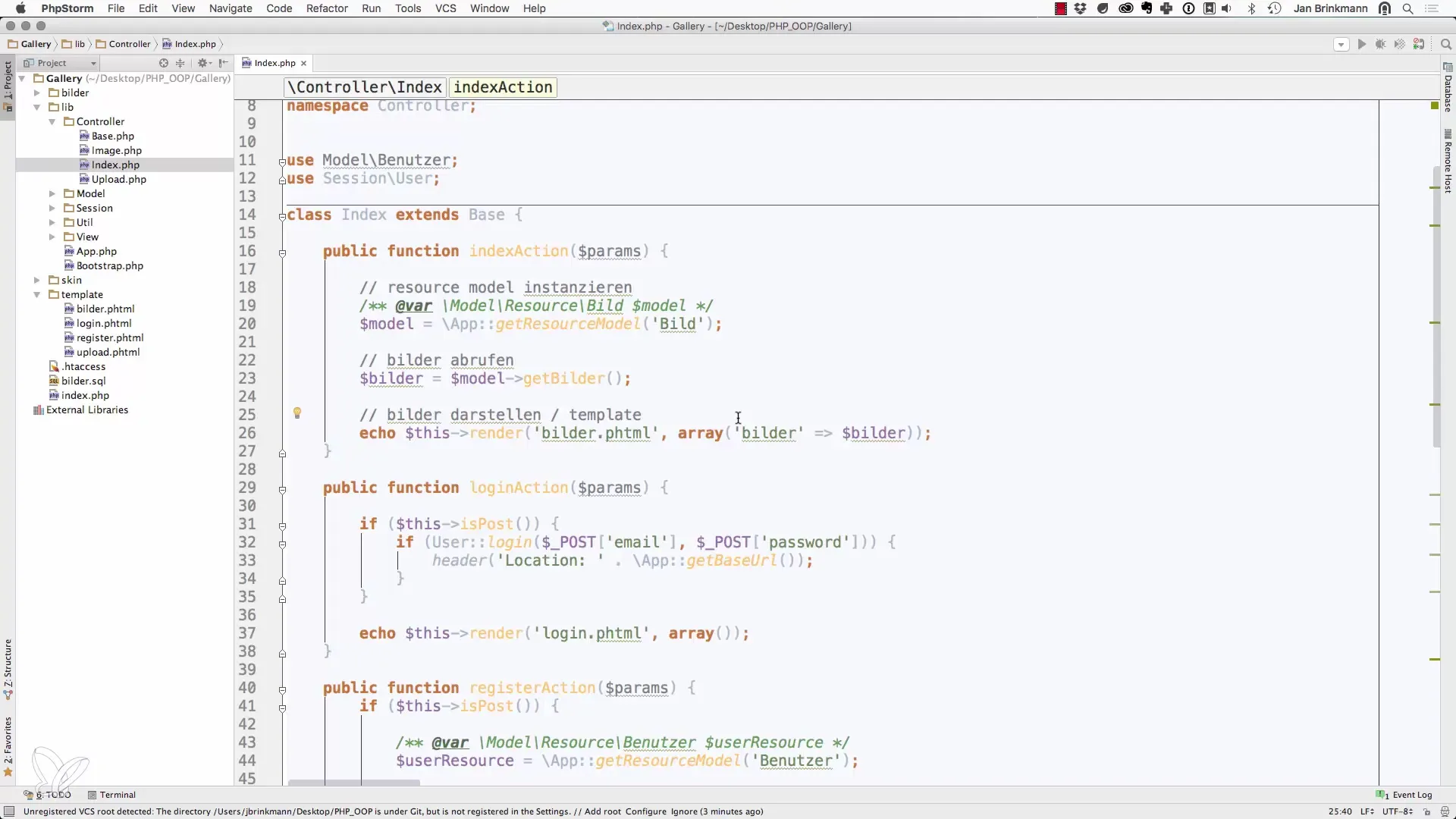
Here, you should ensure that you import the right components and name the class correctly. In this class, you can now define the methods you need for your API.
Step 2: Define the Index Action
Now it’s time to define the index action for your controller that will provide the resources. This method could be called “imagesAction” and should include parameters for accessing your resources. Essentially, this allows access to your images.
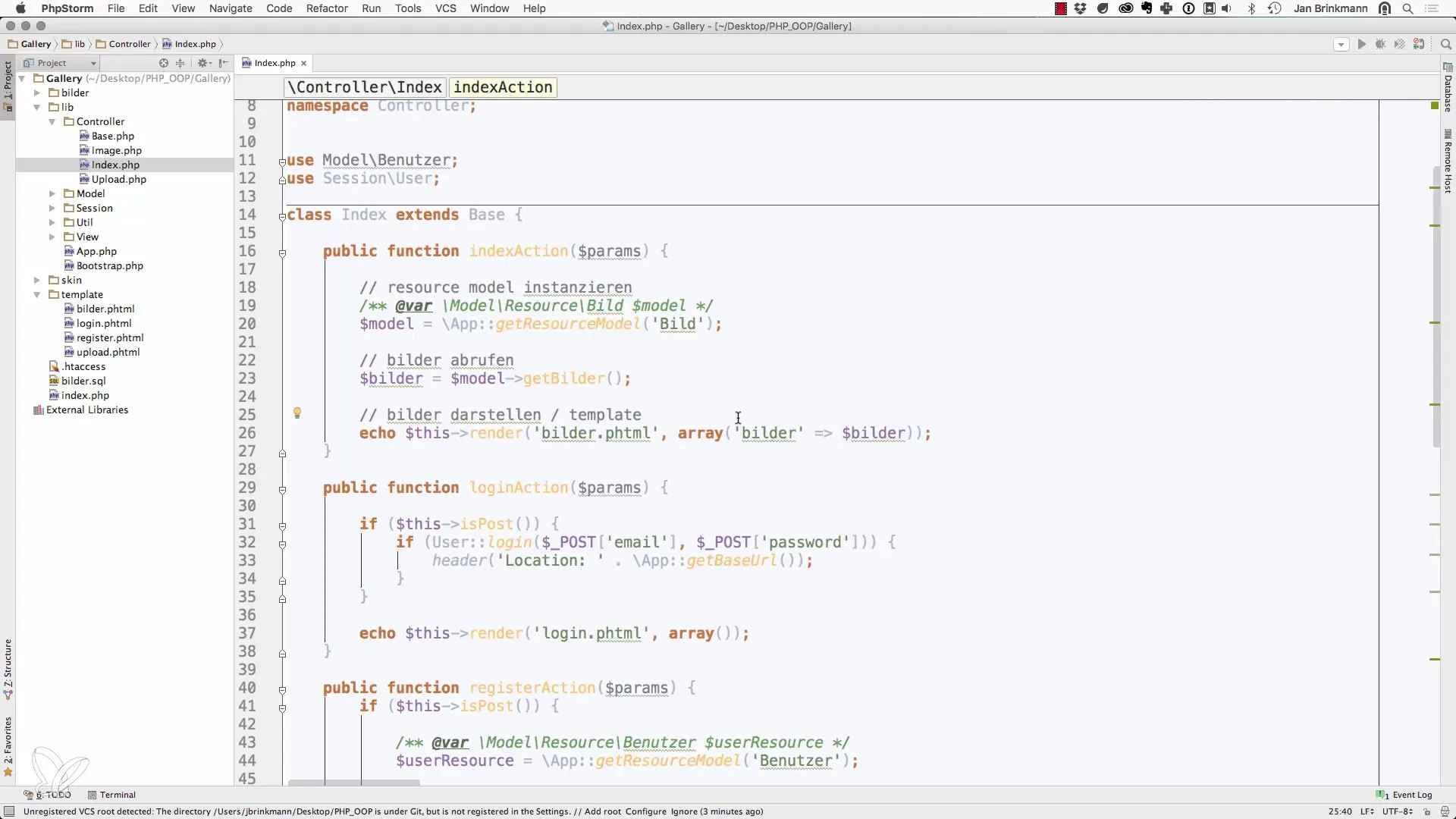
In this function, you call the model for the images and then retrieve the data. This is done through a method that loads all images from the database.
Step 3: Working with the Model
You are now building on the model for images and using the method GetBilder to retrieve the images. Here, you will get back an array of image objects that you can process.
The model allows you to encapsulate all the database logic, so you can focus on the presentation in the controller.
Step 4: Create JSON Template
Once you have the images, the next step is to create a template in JSON format. You will use the render method to pass the images to the template.
Here, you should create a new directory where the JSON template will be stored. Make sure that you do not create HTML documents but only output JSON.
Step 5: Prepare JSON Output
For the output in JSON format, you will use json_encode to convert the requested data into a JSON format. Additionally, you need to create an array for each image that contains the required content such as ID, name, and URL of the image.
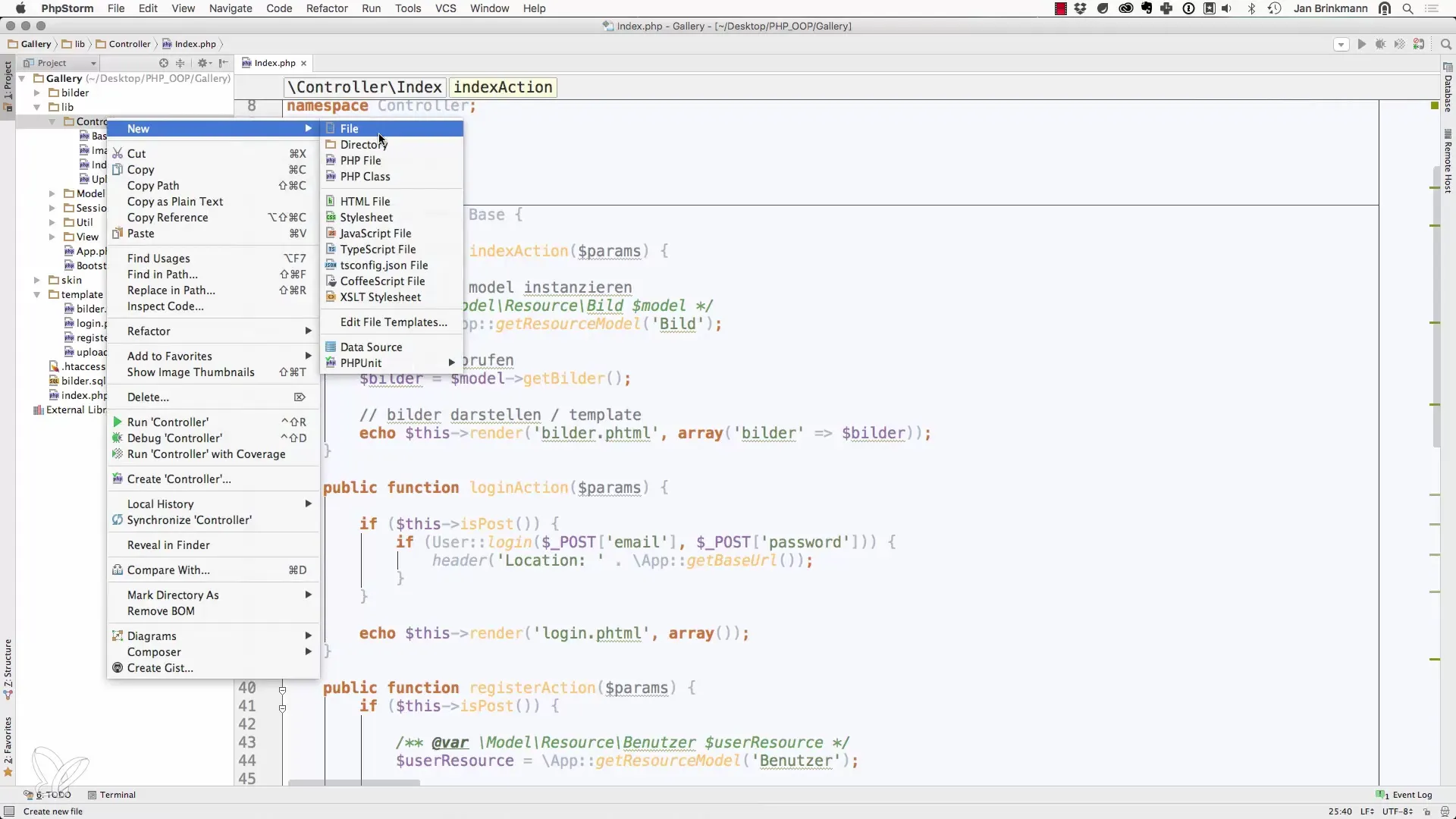
You should ensure that you gather all the necessary information so that the API can return all the required data to the client.
Step 6: Generate URLs for the Images
To generate correct URLs for your images, each image URL should be combined with the base URL of your application. You will use methods to create the full URL while referencing the image ID.
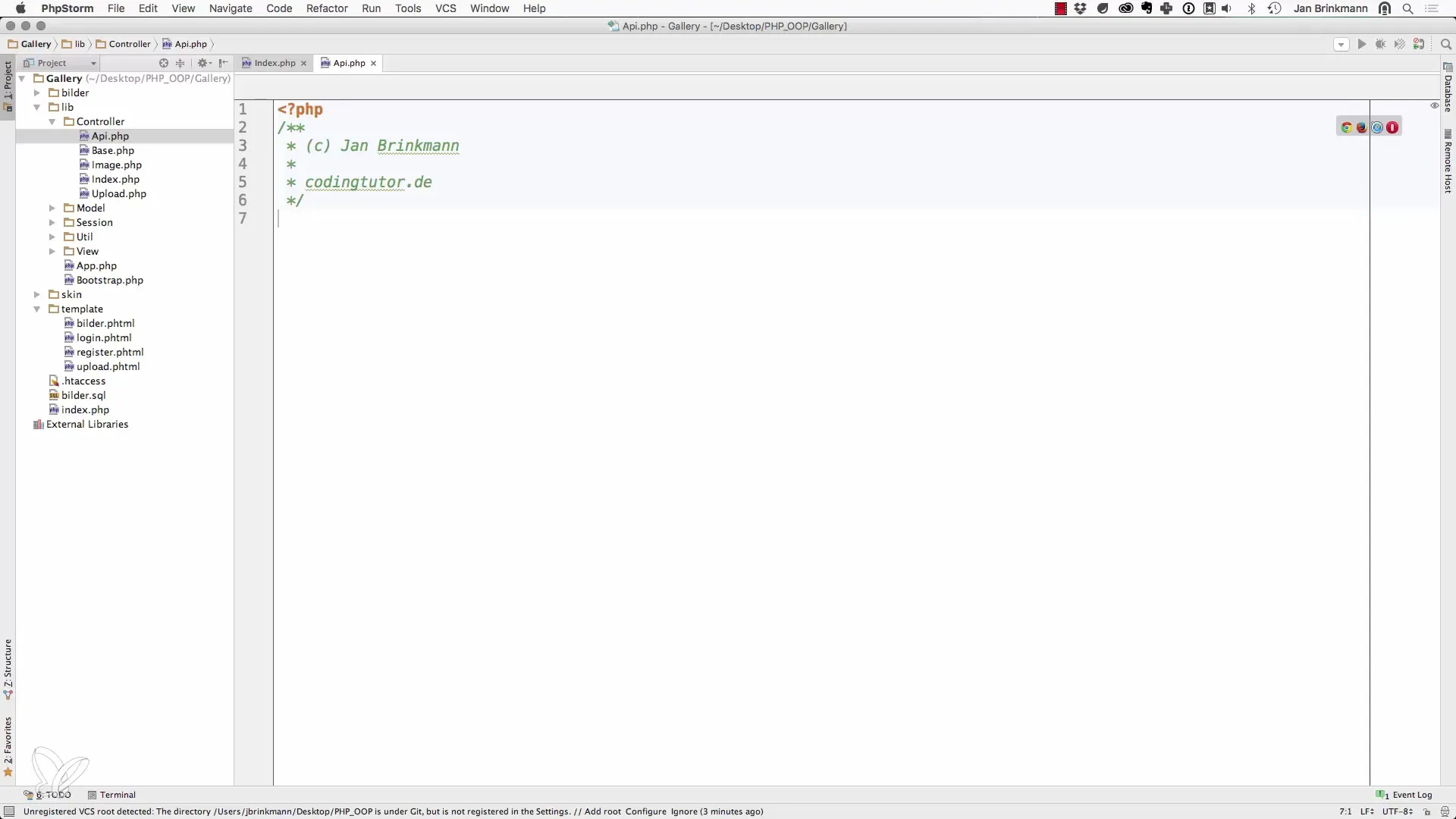
This approach gives you the flexibility to generate the URLs and ensure that they can be used correctly throughout your application.
Step 7: Testing the API
Now you are ready to test your API in the browser. Simply call the URL that you have defined for your API and check if the data is displayed correctly in JSON format.
Be sure to fix any potential errors, such as unnecessary slashes or missing quotation marks, which could possibly make the API response invalid.
Step 8: Implementing Additional HTTP Methods
The basic functions of your API are now available, but your API will only be complete when you also implement other HTTP methods like POST and DELETE to add or delete data. These methods often operate on the same URL as GET, but with different requests.
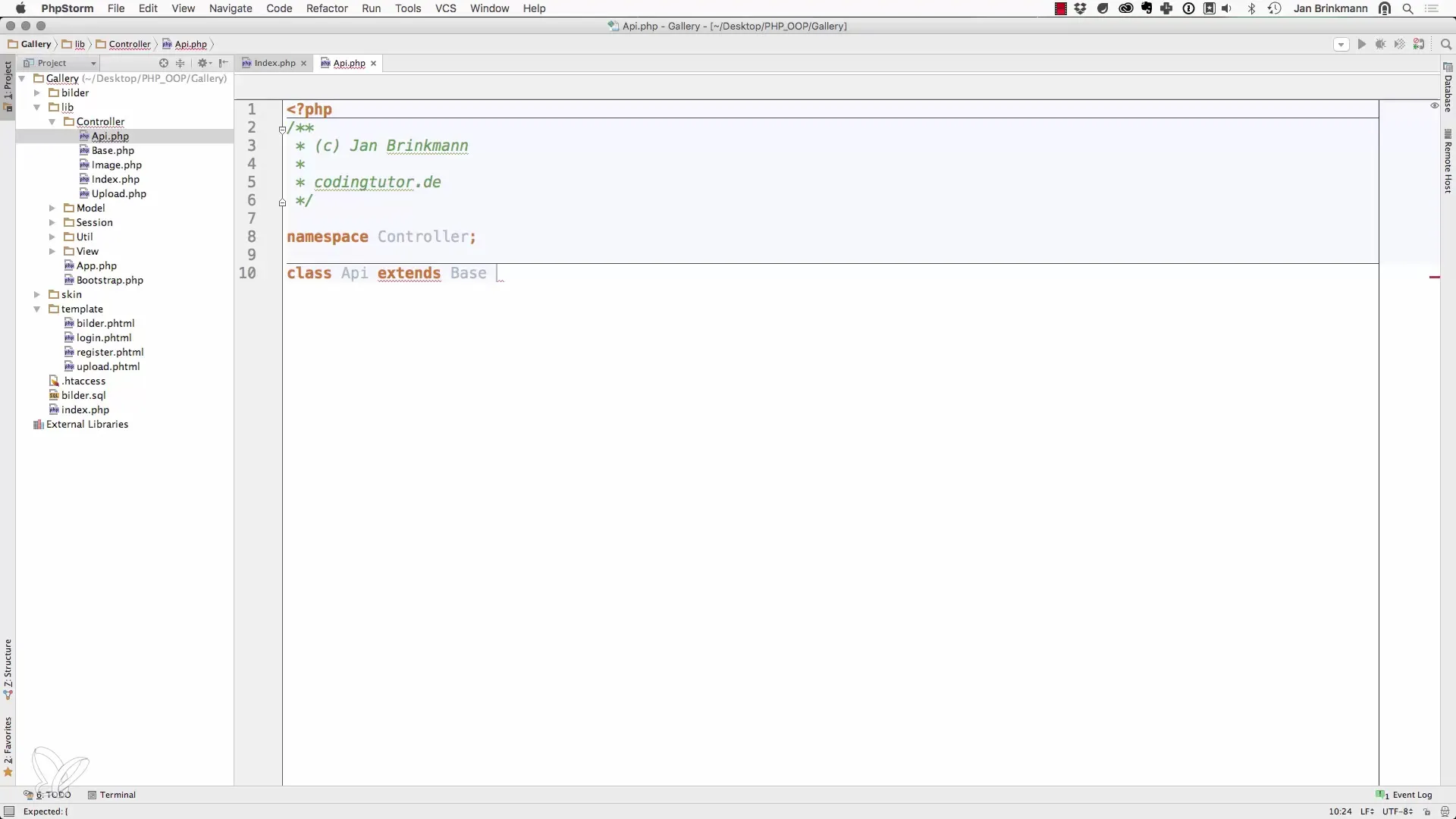
This means that you will have to adjust the routing logic in the backend accordingly to ensure effective processing of the different requests.
Summary - Designing an API Controller for JSON Outputs
In this guide, you have learned how to create an API Controller in PHP that uses a JSON template for output. You have learned the basics of RESTful API structure and successfully loaded data from a database and provided it in JSON format.
Frequently Asked Questions
How do I create a controller in PHP?You create a new controller, name it, and define the necessary methods in the class.
What is a JSON template?A JSON template is a structure that outputs data in JSON format to make it easily accessible for APIs.
How do I test my API?You can call your API in the browser by entering the corresponding URL and checking the JSON data.


